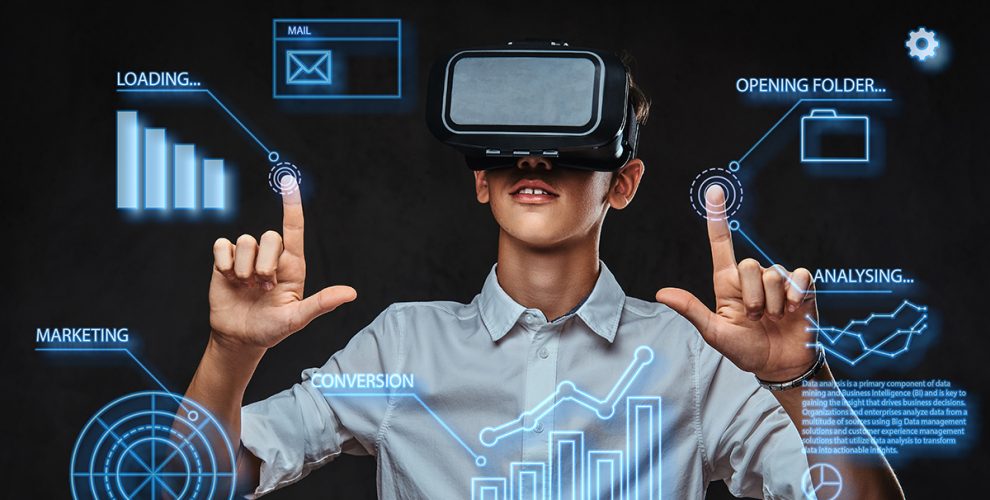Have you ever wondered about machine thinking on their own, doing work as humans do, and solving complex problems? It always seemed like a joke. But it isn’t a 21st-century technology. Originally, it was 1950s technology which later did not have any development in the field.
AI seemed a distant dream. But AI is all the rage these days. We can yet begin to foresee where it’s going. Advanced AI is possible in ten or twenty or thirty years. But we can work harder to understand what it actually is and also think harder to put ethical boundaries on its future development and use.
First of all, let’s understand in short what AI is.
The term AI was first coined at Dartmouth College, in Hanover, New Hampshire, in 1956. AI systems are basically computers that can “learn” how to do things through a process of “trial and error” with some medium for telling them when they’re right and when they’re wrong.
In simple, AI is a machine where it thinks and solves complex problems. Basically, AI works like human intelligence and is more advance than human intelligence.
Evolution of Artificial Intelligence:
In the late 1950s, the first AI program was only able to solve 38/50 mathematics problems. But AI now can solve complex problems and create real-time solutions to a problem. AI now minimizes the work of humans and provides various solutions to a problem.
One can utilize AI algorithms to portray individual thinking. AI theory is one of the many that will encompass future innovations.
The next phase and future of AI are that scientists now want to utilize both human and machine strengths to create a super-intelligent machine.
Today, humans have taught machines to effectively take on human jobs and tasks that have created a more efficient world. The future of AI is over to the creative spark and revolution.
The recent development of AI programs:
> GPT-3 by open AI, the most advanced and largest language model ever created.
> Sophia the AI robot
> Self-driving car
> AI bot
These are well-known and popular AI programs.
A few latest AI technologies are:
> Natural language processing
> Speech recognition
> Virtual agents
> Robotic process automation.
What are the Branches of AI?
- Knowledge engineering: It is where AI tries to emulate the judgment and behavior of human experts.
- Robotic machine: An AI-powered machine that executes a specific task with no human intervention.
- Machine learning: An AI program that is capable to imitate intelligent human behavior.
- Natural language processing: AI program that can understand text and spoken words in much as same way humans can.
Pros and Cons of AI programs:
AI programs have both advantages and disadvantages, let’s discuss them:
Advantages of AI:
- Minimize the time taken to perform a task
- Operates 24×7 without interruption
- Facilitates the process by making analyses faster.
Disadvantages of AI:
- High cost
- Emotionless
- Make human lazy
- Leads to unemployment
AI is changing the world faster than expected. AI makes people’s lives more efficient and easier, providing services for doing everyday things such as connecting with friends and using an email program. The best example of AI in daily life is travel navigation, smart home devices, smart cars, etc.
AI enhances the speed, precision, and effectiveness of human efforts. AI is making our life easier.
AI and its future:
The combination of AI and human intelligence will lead to development in various sectors. Expecting AI to bring changes in various sectors such as healthcare, education, manufacturing, security and defense, and automated vehicles.
- According to statical reports, AI will be better than human beings at translating languages, promoting items, and conducting surgical procedures.
- It is also reported that the AI market is expected to reach $190 billion by 2025. AI also has the potential to boost the world economy by an estimated $15.7 trillion.
- Artificial intelligence will create a new era in the history of mankind. Human civilization will flourish by amplifying human intelligence with artificial intelligence as long as we manage to keep the technology beneficial.
- We won’t be able to separate ourselves from this technology as it would become an integral part of our lives shortly. We can say that artificial intelligence will be the future of the world.
Now that you know and have understood the importance of AI and what AI is actually and clearly understood the role of AI evolution. It is a great learning experience to know the next revolutionary innovations using AI. Thanks for the opportunity to write and the chance to share what I have explored in my field. I’m glad to pursue my graduation in this best artificial intelligence colleges in Coimbatore.
Blog by,
Bharath KS (20BTAD007)
Department of B. TECH AI & DS



